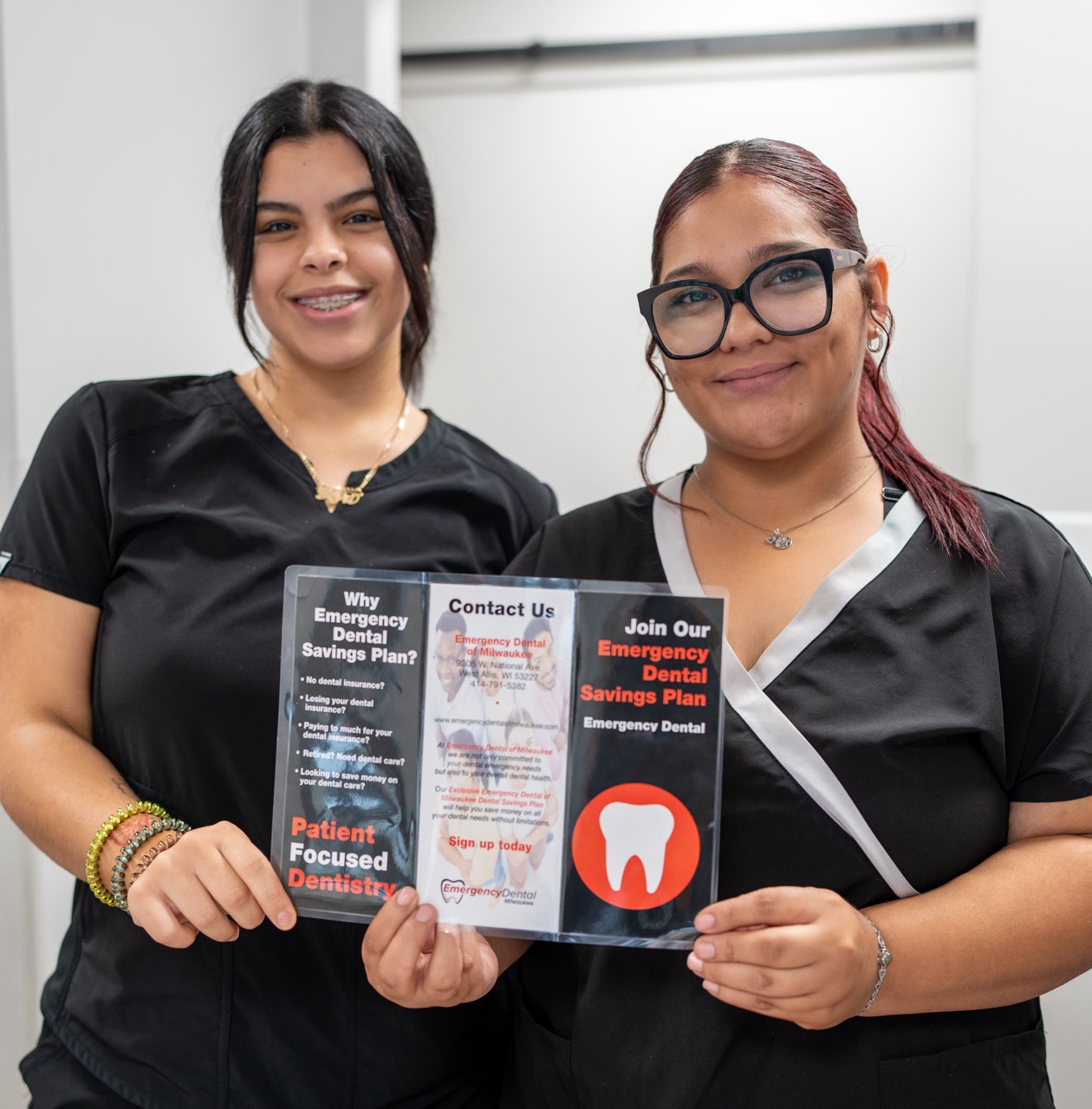Introduction: Gum Disease Awareness Month
As we observe Gum Disease Awareness Month here at Emergency Dental of Colorado Springs, we’re reminded of the importance of comprehensive oral care. Gum disease, also known as periodontal disease, affects many individuals each year and poses a significant health concern. In this blog post, we aim to shed light on what gum disease entails, its causes, warning signs, and preventive measures. Whether you’re a regular patient or new to our practice, understanding gum disease is crucial. Your gum health is our priority, and we’re committed to equipping you with the knowledge and resources needed to effectively recognize and combat gum disease during Gum Disease Awareness Month.
What is Periodontal Disease?
Periodontal disease is a problem where the tissues supporting your teeth get inflamed due to bacterial infection, leading to damage. If not taken care of, it can cause tooth loss. It has different stages, starting with gingivitis, which is inflamed gums and can worsen. Recognizing the signs early is crucial for getting help from Emergency Dental of Colorado Springs.
Causes of Periodontal Disease
Various factors can contribute to the development of periodontal disease, including:
- Poor oral hygiene: Neglecting regular brushing and flossing allows plaque—a sticky film—to build up on your teeth.
- Tobacco use: Using tobacco products not only stains teeth but also heightens the risk of gum disease.
- Genetic predisposition: Some individuals are more susceptible to severe gum disease due to their genetic background.
- Medical conditions: Certain systemic illnesses, like diabetes, can elevate the likelihood of developing gum disease.
Early Signs of Periodontal Disease
Recognizing early signs of gum disease is crucial for timely intervention. Some of these signs include:
- Bleeding Gums: When plaque causes gingivitis, gums may bleed during brushing or flossing.
- Swollen or Tender Gums: Periodontal disease can cause gums to become red, swollen, and sensitive.
- Bad Breath: Persistent bad breath, unrelated to food or smoking, could indicate gum disease.
- Loose Teeth: Advanced gum disease may result in loose teeth due to the loss of supporting bone and tissues.
- Receding Gums: Gums pulling away from teeth, making them look longer, is another indicator of gum disease.
Prevention and Treatment
Preventing periodontal disease requires consistent oral hygiene practices and routine professional dental care. Treatment options range from simple interventions like scaling and root planing to more advanced surgical procedures.
Here are critical steps for prevention:
- Proper Oral Hygiene: Brushing at least twice daily and flossing daily help remove plaque and prevent gum disease.
- Regular Dental Check-ups: Visiting Emergency Dental of Colorado Springs regularly is crucial for prevention and early detection. Our dentists can spot signs of gum disease before they become apparent and offer guidance on improving oral health.
- Scaling and Root Planing: These non-surgical procedures involve deep teeth cleaning above and below the gum line to remove plaque and tartar buildup.
- Antibiotics: In some cases, antibiotics may be prescribed to fight infections and aid in healing, either alone or alongside other treatments.
The Impact of Periodontal Disease on Overall Health
Gum disease doesn’t just affect your mouth; it’s connected to other health problems. Research has found links between gum disease and conditions like respiratory disease, diabetes, heart disease, and complications during pregnancy. This underscores the importance of preventing and treating gum disease, not only for oral health but also for overall well-being.
- Dental-Systemic Connection: The connection between dental health and overall health is undeniable. The body and mouth are interconnected within a complex system, where oral health reflects and can impact general health conditions.
- Heart Disease: While ongoing research continues to unravel the specifics, a substantial body of evidence supports the notion that gum disease heightens the risk of heart disease. The inflammation stemming from gum disease may contribute to arterial inflammation, a pivotal factor in heart attacks and strokes.
- Diabetes: Conversely, individuals managing diabetes face an increased susceptibility to gum disease due to compromised immune responses. Those with diabetes must prioritize oral health to mitigate potential complications.
- Other Health Conditions: Studies have revealed compelling associations between gum disease and diverse health issues such as rheumatoid arthritis, respiratory infections, and Alzheimer’s disease. These findings underscore the critical role of maintaining optimal oral health in safeguarding overall health and well-being.
Conclusion: Gum Disease Awareness Month
At Emergency Dental of Colorado Springs, we understand the crucial link between oral health and overall well-being. Gum disease is a severe threat that requires attention. Its silent progression underscores the importance of consistent care and regular check-ups.
During Gum Disease Awareness Month, we urge you to reassess your oral hygiene habits and make any necessary adjustments to protect your smile and health. Diligent maintenance, early detection, and professional assistance are essential in combating this prevalent dental concern. Our dentists can identify signs of gum disease before symptoms arise, emphasizing the value of scheduling regular appointments. Prioritize the health of your smile—it’s an investment in your overall well-being.
Stay up-to-date with the latest in dental health and wellness by connecting with us on social media! Follow us on Instagram and Facebook for regular updates, tips, and insights to keep your smile bright and healthy. Join our community today and be a part of our journey towards better oral health.

